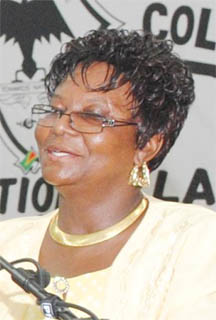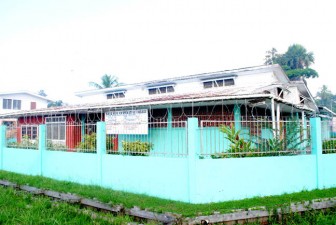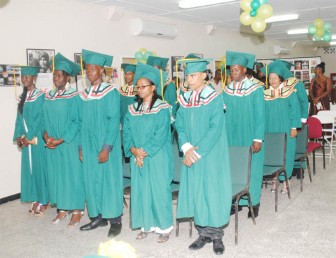The PNC has been out of power for twenty years and the PPP has held the reins of political office for the same period. Both may well have forgotten all that they had learnt about a state-driven economy and even though the ruling party has kept its Marxist/Leninist shape its leadership clique have embraced orthodox capitalism with a level of enthusiasm akin to that which has been in evidence amongst the ruling elite in Russia and China.
Still, cooperatives have survived. They may be a shadow of their former selves, but they have endured nonetheless.

The government may have kept a state-run administrative structure in place as a sort of token acknowledgement that cooperatives were once prominent in the Guyana economy. In reality, however, the political administration does not appear to have the slightest interest in the survival of the movement. Most of the major Cooperatives have long folded under the twin pressures of corruption and lack of will amongst their members. Those that survive are jaded.
The same cannot of course be said of cooperative credit unions, institutions that have done much to subsidize what in most cases have been the meager salaries of their members.
Another survivor within the cooperative movement has been the Kuru Kuru Cooperative College, established by an Act Of Parliament on July 1973and deriving its powers from Cap 39:03 of the Constitution of Guyana.

The original aim of the Kuru Kuru Cooperative College was to provide courses in cooperatives education. Headquartered at the time on the Soesdyke/Linden Highway the College operated extra-mural branches at Linden, Berbice and Essequibo, underscoring what the PNC had said was its intention to make the cooperative sector the dominant sector of the economy.
If the jury is still out on whether or not the cooperative movement made an indelible mark under the PNC administration the view certainly exists that if it failed to do so it was not for want of resources or opportunity.
Millions of dollars were spent in the allocation of funding, land and other resources to the startup and sustaining of agricultural, manufacturing and other cooperatives. Only a few survive today and the view has been expressed that the failures were due largely to the fact that members of cooperatives were less appreciative than they ought to have been of the need to manage cooperatives in much the same way that orthodox businesses are managed.

All that having been said the Kuru Kuru Cooperative College can lay considerable claim to survival and growth. Apart from having retained an interest in cooperative education the institution has extended itself into conventional academic education, adult education and business education. This year it graduated several students in the conventional CXC curriculum and ran other courses in photography and videography. The institution’s administrator Myrtle Richards says that the real accomplishment of the College reposes in the fact that it has reached out to those who seek an education beyond the confines of the curriculum for which it was created. She says that the real successes of the College repose in the role it has played in strengthening and revitalizing School Thrift Societies, empowering lots students to become self-assertive and having its Certificate in Business Studies accepted as a recognized qualification for entry into the University of Guyana’s Social Sciences faculty.
Richards is assertive about the accomplishments of the College and the role it continues to play in providing ‘second chances’ for youngsters seeking to pursue a sound education. She is, she says, excited about the prospects of the College in 2013, the 40th year of its existence. Then, it will be venturing into other mainstream disciplines including Marketing, Management and Information Technology. She believes that the College can play an even more significant roie in preparing its students for the world of work whether it be in self employment or paid employment.
These days the College is located at its Extra-Mural Building in Durban Backlands and has formed working alliances with the Guyana Chapter of the Association of Caribbean Tertiary Institutions, the Guyana Forum for Lifelong Learning, the Guyana National Cooperative Union, the Guyana Cooperative Credit Society and Washburn University in Texas.
The Kuru Kuru Cooperative College may not have been the only institution of its kind to survive the years of socio-political transformation in Guyana. The success of the cooperative movement in Guyana is perhaps best reflected in the impressive growth of Credit Unions many of which have remained vibrant despite challenges.




